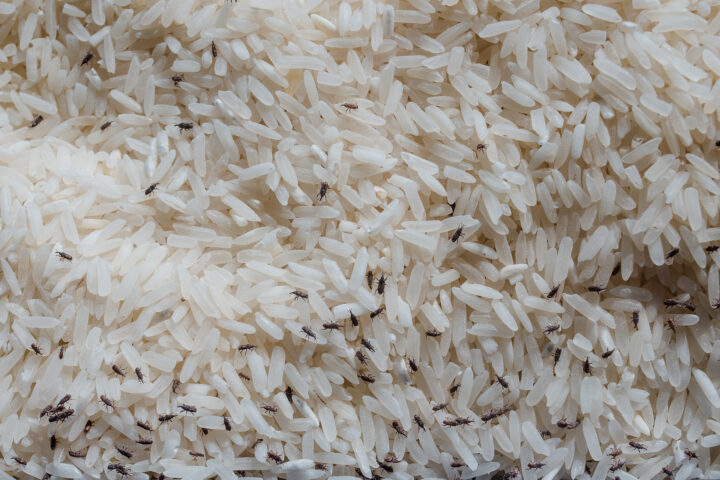
No food safety without pesticides
Measured residues of pesticides are often sensationalised in the media. The fact that these residues are well below the levels that could affect our health is usually not mentioned.
Wednesday, October 21, 2020
The most important information in brief:
- Pesticides are often portrayed as a danger to human health.
- The opposite is true. A ban on pesticides can have consequences for food safety.
- Pesticides are indispensable as disinfectants and cleaning agents.
Pesticides do not play a causal role in any of the reported cases of foodborne disease outbreaks. This is because the currently measured concentrations of pesticide residues are so low that they pose no risk to health and the environment. This realisation is slowly also reaching the municipalities where increased limit values have been measured, for example, for chlorothalonil degradation products. The Aargauer Zeitung reported on the village of Mettauertal, where the limit of 0.1 micrograms was exceeded by 0.06 micrograms. The Mettauertal waterworks manager takes a pragmatic approach. He told the Aargauer Zeitung: ‘I don't want to gloss over the problem.’ However, he said there was no reason to panic: ‘Even if the limit is exceeded, the water in the Mettauertal community is safe to drink.’
Common hazards: noroviruses and bacteria
The Federal Food Safety and Veterinary Office (FSVO) has published the latest ‘Report on the monitoring of zoonoses and food-borne outbreaks’. In 2019, 23 food-borne outbreaks were reported in Switzerland. In addition, there were five known salmonella outbreaks. However, not all cases are reported to the authorities. It is also not possible to identify the pathogen causing the outbreaks in all cases. However, noroviruses and bacteria are often responsible. They find their way onto guests' plates due to a lack of hygiene practice in catering establishments. The BLV writes: ‘In at least seven cases, however, the inspections revealed problems in the implementation of good hygiene practices, for example deficits in the self-control concept and its implementation, gaps in hygiene and cleaning, as well as inadequate storage of food and an inadequate or non-existent cold chain for food with high microbiological risks’.
Sources
Kindly note:
We, a non-native editorial team value clear and faultless communication. At times we have to prioritize speed over perfection, utilizing tools, that are still learning.
We are deepL sorry for any observed stylistic or spelling errors.
Related articles

Grain beetle eats its way through Swiss grain stores
The grain beetle is spreading in Swiss grain stores. Introduced via international trade, it threatens harvests and impairs food quality.

New problem: soft bugs, native pests discover fruit and vegetables
Soft bugs are spreading at lightning speed in fields and greenhouses in southern Germany. These pests are destroying fruit and vegetables and pushing agriculture to its limits. Effective plant protection products must be found urgently to safeguard harvests.

Three times more Asian hornets – biocides needed
The Asian hornet has been a threat to the native honeybee for several years. The situation continues to worsen. As new figures show, there were almost 4,000 sightings last year – a threefold increase in the number of Asian hornets. The pest is attacking biodiversity. Politicians are also alarmed.

Is the industry exporting banned pesticides?
NGOs and the media repeatedly report on Swiss manufacturers of plant protection products who export pesticides that are banned in Switzerland. They claim that weak regulations in the importing countries are being deliberately exploited. However, this is not the case. Swiss manufacturers adhere to strict international standards when exporting plant protection products. Since approvals are also tailored to agronomic needs, the crops grown and the market, regulation from Switzerland makes no sense.

